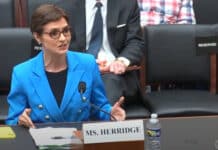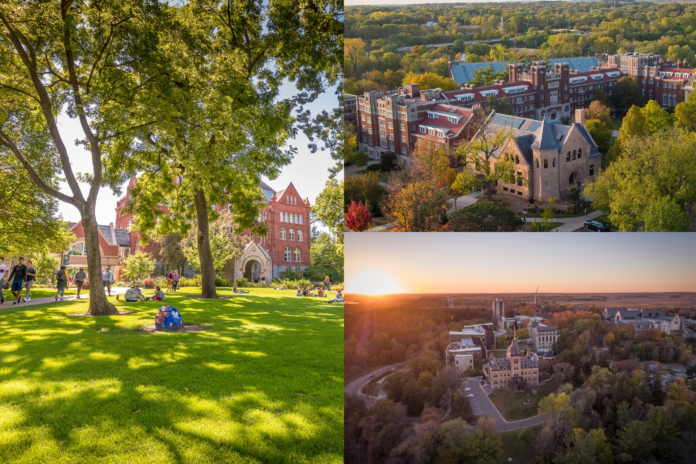
Rose Williams | Anna Miller
The right to free speech on college campuses in America is no longer guaranteed, and Minnesota’s private universities are a prime example.
Campus administrators continually undermine the liberty of students to speak as they choose, which is why the Foundation for Individual Rights in Education (FIRE) exists. FIRE’s mission is to “defend and sustain the individual rights of students and faculty members at America’s colleges and universities,” including the right to free speech.
FIRE argues that a university’s “intellectual vitality” relies on the ability of students and faculty to freely express their ideas. This cannot happen when “students or faculty members fear punishment for expressing views that might be unpopular” with the public in general or with school officials.
FIRE ratings
FIRE provides a comprehensive database of American universities that are notorious for restricting free speech. The organization does this by giving each campus it reviews a rating of “red light,” “yellow light,” or “green light.”
A “red-light” school has one or more policies that clearly and directly violate free speech. “A ‘clear’ restriction is one that unambiguously infringes on what is or should be protected expression,” according to FIRE’s explanation of the ratings.
A “yellow-light” school has policies that restrict some free speech, but in a more limited fashion than a red-light school does. A yellow institution is often given this rating for vague wording in its policies that could “too easily be used to restrict protected expression.”
If FIRE reviews a campus’s policies and finds it does not have any that sincerely violate the right to free speech, that university is given a “green light.”
Laura Beltz, a senior program officer for FIRE, told Alpha News that not a single Minnesota school reviewed by the organization received a green light.
“All of the Minnesota schools rated in our database have at least one policy that could too easily be applied to restrict protected speech,” she said.
Minnesota’s red-light universities
Of the ten Minnesota schools reviewed by FIRE in July 2020, Carleton College, St. Olaf College, and Macalester College were given red ratings.
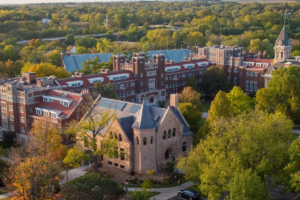
All three schools are private institutions — meaning they have no legal obligation to protect free speech — but they promise to uphold the First Amendment in their own handbooks and stated values.
“While they’re not legally bound by the First Amendment, these three schools do promise their students free speech rights in official policy materials and need to live up to those commitments,” Beltz noted.
Carleton College in Northfield earned a red light because of its policy on “sexually inappropriate conduct,” which bans speech that could be deemed offensive by the recipient.
The school’s campus handbook states: “Sexually inappropriate conduct includes unwelcome sexual conduct that may not rise to the level of sexual harassment. Conduct that may be considered sexually inappropriate may be isolated behavior not sufficiently serious to be sexual harassment under this policy.”
In addition, Carleton was deemed red for its media and internet usage policy, which bans any material that is “demeaning or discriminatory via any electronic mail, bulletin board, or other computer network facility.”
St. Olaf College, also located in Northfield, was given a red rating because of its strict internet usage policy.
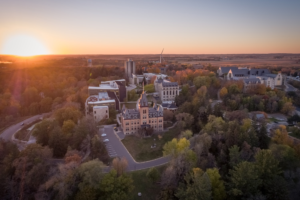
This policy states that students and staff are subject to disciplinary review for either creating or posting material that is deemed “offensive, pornographic, libelous, or intended to harass.”
St. Olaf drew national attention in 2018 when it prohibited Ben Shapiro, a popular conservative influencer, from speaking at the school.
St. Olaf reportedly said that it would be inappropriate for him to speak at the scheduled time since it was close to the one-year anniversary of certain anti-racism protests on campus. School officials called Shapiro “divisive” and said his appearance would have been “counterproductive.”
Macalester, a private school in St. Paul, was also given a red light due to both its sexual misconduct policy and internet usage policy.
Macalester’s sexual misconduct policy, as seen below, defines punishable behavior as conduct that is “clearly” offensive from both a “subjective” and an “objective” point of view. Eight examples are included in the handbook, many of which are protected speech.
“Gossip about sexual relations” and “verbal commentary about an individual’s body” are considered sexual harassment and punishable behavior.
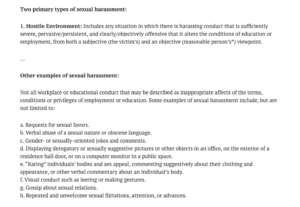
Macalester’s internet usage policy, which prohibits “inappropriate” or “objectionable” social media material both on and off campus, was featured in an April 2020 article from FIRE on the nation’s “Worst IT Policies.”
“The consequences for violating Macalester’s policy are also severe, with their threats of serious institutional punishment and even criminal charges,” the article notes.
Yellow-light schools
The two University of Minnesota schools reviewed by FIRE, the Twin Cities and Morris campuses, both received yellow ratings.
Some of Morris’s policies allow for punishment of any type of bullying that causes stress or any action that could be considered disruptive. These policies are extremely vague and leave room for interpretation as to how students should be punished, according to FIRE.
While no Minnesota public schools received the worst rating, yellow-rated policies must also be revised to “better track First Amendment standards,” Beltz said.
“Language from yellow-light policies, which place more vague restrictions on speech, have been struck down by courts as unconstitutional, costing schools time and money,” Beltz told Alpha News.
FIRE’s model legislation
Beltz also informed Alpha News that state lawmakers can remedy the situation by passing legislation that promotes student rights.
“Legislation that either promotes student rights by directing universities to adopt clear commitments to free expression or that curtails particular types of restrictions on speech — for example, banning ‘free speech zones,’ which limit student demonstrations to small, out of the way areas on campus — can be helpful in encouraging universities to revise their restrictive policies,” Beltz said.
She noted that FIRE has drafted model legislation for legislators to consider and works with them to adopt speech-protective measures. The model bills include a Campus Free Expression Act, a College Student Free Speech and Association Act, a College Free Press Act, and a Student and Administration Equality Act.
FIRE said it works “across the political spectrum” with lawmakers to protect First Amendment rights on campus.













